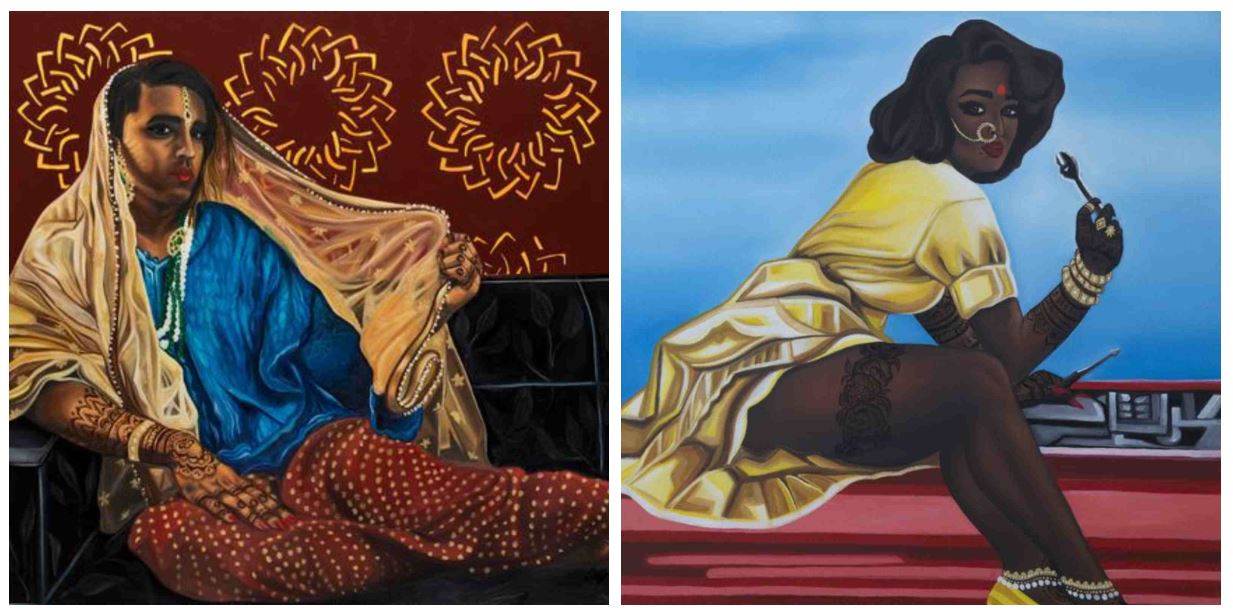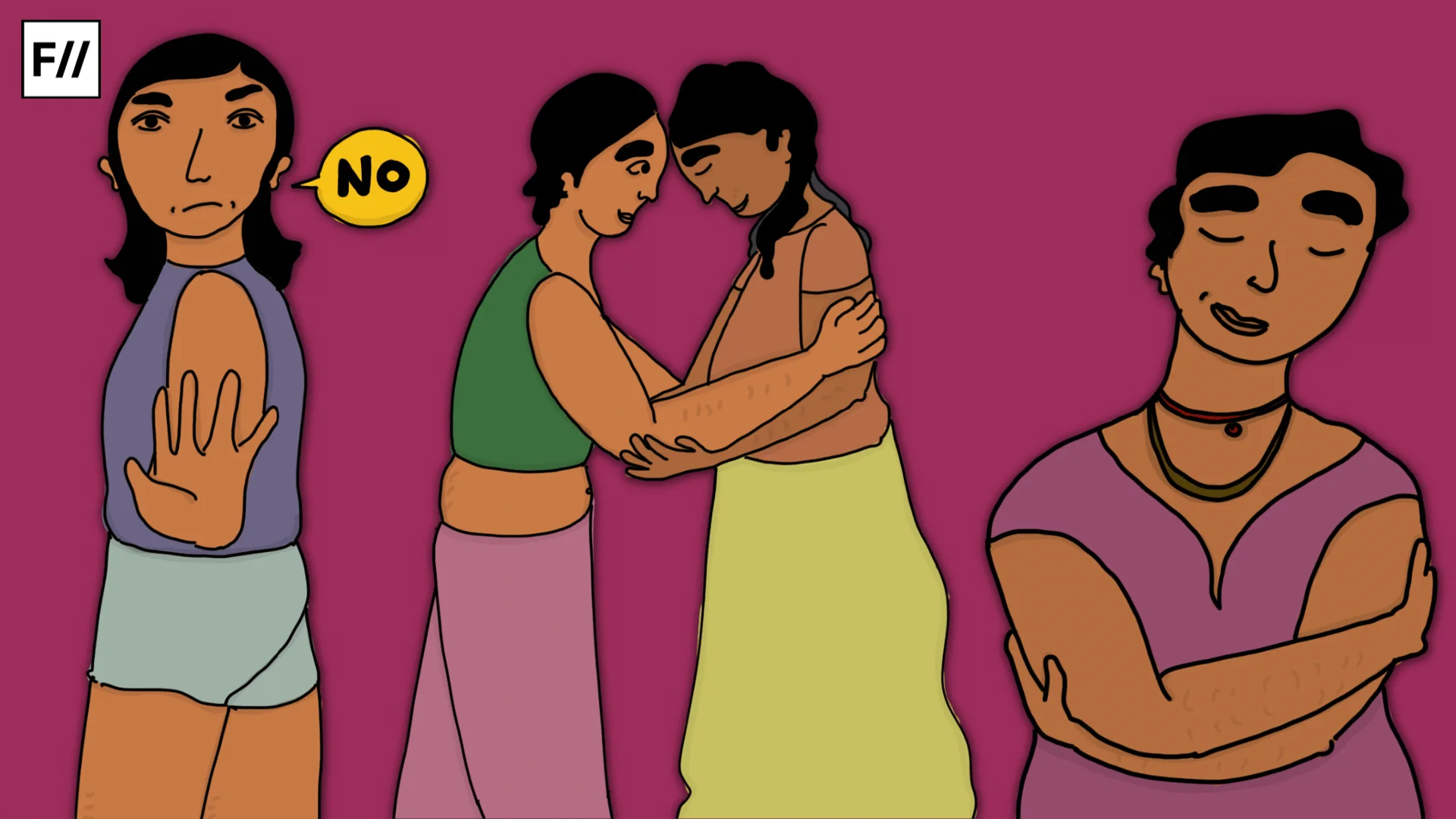Our society has always told us that talking about sex is crass. Especially when it comes from the mouth of a woman. We’re not supposed to talk about sexual pleasure as something we enjoy and crave. Recently, India has seen the slow emergence of a movement to attain sexual liberation with the release of movies like Lipstick Under My Burkha and Veere Di Wedding. While the latter explored and challenged these dynamics serving an upper class Hindu feminism, it was still refreshing to see women masturbate, orgasm, and talk about sex in a way that is often restricted.
The purpose of this ability to talk and be bold about one’s sexual desires is not just a social inversion of heteropatriarchal norms but a political weapon that women deserve to use to feel and achieve liberation. While it is falsely recognised as a form of westernisation this sexual liberation movement in India is a tactic of decolonisation. But where does this concept of sexual repression of the Indian woman come from? Is its origin and source important to understand in order to apply this politics of sexual liberation to our country in its postcolonial glory?
While it is falsely recognised as a form of westernisation this sexual liberation movement in India is a tactic of decolonisation.
I found the answers to these questions in a radically safe space called Hoe Talks started by Briana Powell who is working towards creating spaces where we can talk about decolonising sex in a way that is unrestricted and safe. She explores the commonalities between the colonisation of black bodies and brown bodies. When I left my first Hoe Talks I was perplexed. I had just talked about the female orgasm, the clitoris, non heterosexual sex and numerous other things in a way that I had never before. The space was radical. It was liberating specifically for me as an Indian woman whose parents still had not had the sex talk with her.
As I sat down with the founder of this space to delve into the complexities of this sexual liberation and how it works in a country like India, Briana Powell told me about the foundings of this movement, “Traditionally, the sexual liberation movement entailed sex education in public schools, access to contraceptives, access to safe abortions and access to general information and material to to have sex in a safe and informed way. But now sexual liberation has taken up a different form that allows people of color, disabled people, women and colonised bodies to rise up against this morality attached to their bodies in a paternalistic ways that leaves them stripped off any autonomy”.
This concept becomes integral in India where the Kamasutra was born but sexual repression flourishes. The recent abolishment of Section 377 stands as a great example of the colonial roots of this repressed sexuality. It was under the British Raj that sodomy was criminalised. It became a weapon for our colonisers, an excuse to deem us colonisable. Briana Powell’s time in Ghana helped her understand these colonial roots.
Also read: How My Sexuality Is Rooted In Feminism And Love
“White culture is the most sexually oppressive and its spread to third world countries through colonisation. Indigenous cultures are very sexual but post colonisation they are especially repressive. Sexual repression was a colonizing tool to repress the colonized. They are heathens and they need to be tamed and this rhetoric justified the christianization of colonized bodies. This is why numerous third world/colonized countries continue to play into anglo-saxon christian morals of chastity in order to gain respectability.“
India’s sexual liberation movement then needs to be seen in its postcolonial context where reclaiming our nation took the form of feminising the nation and in turn control the body of the Indian woman which includes restricting her sexual autonomy. The Indian woman’s sexuality, her ability to speak about the pleasures of sex becomes a direct threat to the respectability of the nation and its long standing patriarchal history and what Brianna Powell through her work on sexual liberation telsl us is that this intersects with the identity of black womanhood.
The Indian woman’s sexuality, her ability to speak about the pleasures of sex becomes a direct threat to the respectability of the nation.
“For black and brown women specifically our bodies are objects of domination. For black and brown men, black and brown women don’t just belong to them but they are entitled to our body, mind, labor, children and everything that comes along with us. When we take back our bodies we take back everything that is stolen from us because that is how we are oppressed even by those within our own homes.”
With movies like Margarita With A Straw, Lust Stories, and other shows that reclaim the erotic of the Indian woman, there is a revolutionary decolonisation taking place that is important to recognise. It is important to see this sexual revolution as connecting black, brown, and other colonised bodies throughout the world who are pushing back on the colonisation of the female body.
Also read: What Are The Taboos Concerning Female Sexuality?
This makes spaces like Hoe Talks for brown and black women an integral spaces to talk about sex in a way our parents never did. For Briana Powell it becomes a space to motivate brown and black women to attain liberation.
“We were shamed for touching our bodies and shamed for having bodies. Hoe Talks is a reclamation and a revolution against everything your parents refused to teach you against every slut shaming whisper in the hallway against every laugh at the hallway against every period jokes and against the voice inside you that tells you you are wrong”.
Featured Image Source: Nimisha Bhanot
About the author(s)
Undergraduate studying Religion and Gender, activist, feminist. Gender pronouns - she/her/hers




